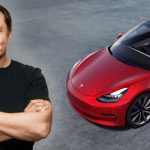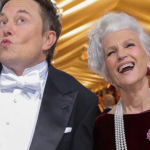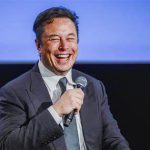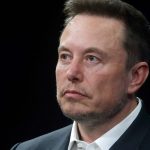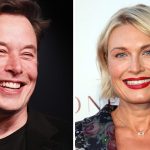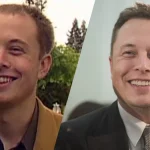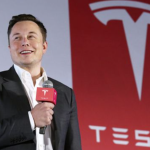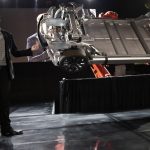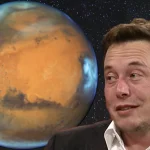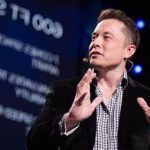🚀 Elon Musk: More Than Just an Entrepreneur, an Icon of Innovation! 💡
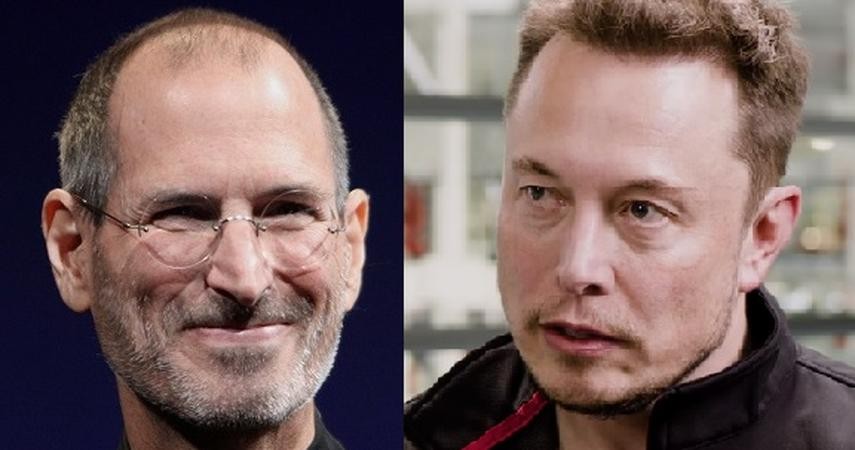
🚀 Elon Musk: More Than Just an Entrepreneur, an Icon of Innovation! 💡
Elon Musk is a name that resonates across the globe, synonymous with ambition, ingenuity, and a relentless pursuit of the future. To many, he is not merely the CEO of Tesla and SpaceX but a visionary whose ideas transcend traditional entrepreneurship. Musk has become an icon of innovation, inspiring millions with his audacious goals and transformative achievements. His journey is a testament to what humanity can accomplish when bold dreams are paired with unwavering determination. From revolutionizing the automotive industry to redefining space exploration, Musk’s influence stretches far beyond the confines of business, touching the realms of technology, sustainability, and even philosophy.
🚗 Tesla: When Electric Cars Are No Longer Just a “Green” Choice
Before Elon Musk entered the scene, electric vehicles (EVs) were largely dismissed as niche products—underpowered, uninspiring, and primarily marketed to environmentally conscious consumers willing to sacrifice style for sustainability. The prevailing perception was that EVs were a compromise, a “green” choice that lacked the excitement and prestige of their gasoline-powered counterparts. Musk, however, saw untapped potential where others saw limitations. With Tesla, he didn’t just aim to build an electric car; he sought to redefine what a car could be.
Tesla’s rise under Musk’s leadership has been nothing short of revolutionary. The company’s flagship models—the Roadster, Model S, Model 3, and Model X—combine sleek design, blistering performance, and cutting-edge technology. The Tesla Model S, for instance, shattered stereotypes about electric cars with its ability to accelerate from 0 to 60 miles per hour in under two seconds, rivaling the world’s fastest supercars. This wasn’t just an electric vehicle; it was a statement of power and luxury. Tesla’s vehicles became symbols of status and innovation, appealing not only to eco-conscious buyers but also to car enthusiasts and tech aficionados.
A key element of Tesla’s success is its pioneering work in autonomous driving. Musk’s vision for a future where cars drive themselves has pushed the boundaries of artificial intelligence and machine learning. Tesla’s Autopilot system, while not without its controversies and challenges, represents a bold step toward a world where human error on the roads could become a thing of the past. By integrating advanced sensors, cameras, and software, Tesla has positioned itself as a leader in the race toward fully self-driving vehicles.
Beyond performance and technology, Tesla has also transformed the automotive industry’s approach to sustainability. Musk understood that combating climate change required more than just preaching environmentalism—it demanded making green technology desirable. Tesla’s sleek designs and high-performance capabilities turned electric cars into objects of aspiration, proving that sustainability and style could coexist. Today, Tesla’s influence is evident in the broader industry, as legacy automakers scramble to electrify their fleets in response to the paradigm shift Musk initiated.

🚀 SpaceX: Turning the Dream of Conquering Space into Reality
While Tesla reshaped life on Earth, Musk set his sights on the stars with SpaceX. Founded in 2002, SpaceX was born from Musk’s audacious dream of making humanity a multi-planetary species. At a time when space exploration was dominated by government agencies like NASA, Musk dared to imagine a private company leading the charge. What seemed like a fantastical notion has since become a reality, thanks to SpaceX’s groundbreaking achievements.
One of SpaceX’s most significant innovations is the development of reusable rockets. The Falcon 9, with its ability to land vertically after launching payloads into orbit, marked a turning point in the economics of space travel. Before SpaceX, rockets were single-use, discarded after each mission at an enormous cost. Musk’s insistence on reusability slashed launch expenses, making space more accessible than ever before. This innovation didn’t just save money—it opened the door to a new era of exploration and commercialization beyond Earth’s atmosphere.
SpaceX’s milestones extend far beyond engineering feats. In 2020, the company made history by launching astronauts to the International Space Station (ISS) aboard the Crew Dragon spacecraft, marking the first time a private company had ferried humans into space. This achievement underscored Musk’s vision of a future where space travel is routine, not exceptional. The successful missions to the ISS were a stepping stone toward even grander ambitions, including Musk’s ultimate goal: colonizing Mars.
The idea of humans living on Mars might sound like science fiction, but Musk approaches it with the seriousness of a scientist and the passion of a dreamer. Through SpaceX’s Starship program, he is developing a fully reusable spacecraft capable of carrying large numbers of people and cargo to the Red Planet. Musk envisions a self-sustaining colony on Mars within his lifetime, a bold plan to ensure humanity’s survival in the face of potential catastrophes on Earth. Whether or not this vision comes to fruition, SpaceX has already redefined what’s possible in space exploration, proving that the cosmos is no longer the exclusive domain of governments.
🤔 What Makes Elon Musk Different?
Elon Musk’s accomplishments are impressive, but what truly sets him apart is his mindset. He possesses a rare combination of far-sighted vision, fearless risk-taking, and an unrelenting drive to tackle the impossible. Where others see obstacles, Musk sees opportunities. His willingness to challenge conventional wisdom has been a hallmark of his career, from betting on electric cars when the market was skeptical to pursuing reusable rockets when experts deemed it impractical.
Musk’s approach to innovation is rooted in first-principles thinking—a method of breaking problems down to their fundamental truths and building solutions from the ground up. This philosophy has allowed him to sidestep entrenched industry norms and create breakthroughs where others stagnated. For example, when faced with the high cost of rocket components, Musk didn’t accept the status quo; he built SpaceX’s supply chain from scratch, producing parts in-house to slash expenses.
Yet, Musk’s journey has been far from flawless. His career is littered with setbacks—Tesla’s production delays, SpaceX’s early rocket failures, and public controversies stemming from his outspoken nature. Critics have accused him of overpromising and underdelivering, pointing to missed deadlines for projects like the Tesla Cybertruck or the Mars timeline. However, Musk’s resilience in the face of adversity is what defines him. Each failure becomes a lesson, each criticism a catalyst for improvement. He thrives on the edge of possibility, undeterred by the prospect of defeat.
🌟 Elon Musk’s Impact on the World
Elon Musk’s influence extends well beyond Tesla and SpaceX, touching a wide array of industries and issues. Through SolarCity, he has advanced the adoption of renewable energy, promoting solar power as a viable alternative to fossil fuels. His work with Neuralink aims to merge human intelligence with artificial intelligence, potentially revolutionizing medicine and human capability. The Boring Company, meanwhile, seeks to alleviate urban congestion with underground transportation tunnels—an ambitious, if unconventional, solution to a modern problem.
What unites these ventures is a shared purpose: addressing humanity’s greatest challenges. Musk isn’t content with incremental progress; he wants to solve problems on a planetary scale. Climate change, space colonization, traffic gridlock, and the limits of human cognition—these are the kinds of issues that occupy his mind. His companies aren’t just businesses; they’re vehicles for pushing civilization forward.
Musk’s impact is also cultural. He has inspired a generation of entrepreneurs, engineers, and dreamers to think bigger and act bolder. His unapologetic ambition challenges the notion that certain goals are too lofty or impractical. By turning electric cars into fashion icons and rockets into tools of exploration, he has shown that innovation can be both functional and aspirational. Musk’s story is a reminder that progress often comes from those willing to defy the odds and imagine a world that doesn’t yet exist.
A Legacy in the Making
Elon Musk is more than an entrepreneur—he is a force of nature, a figure whose ideas and actions will shape the future for decades to come. His achievements with Tesla and SpaceX are already remarkable, but they represent only a fraction of his vision. Whether he succeeds in colonizing Mars or creating a world powered by renewable energy, Musk has already left an indelible mark on history.
Of course, Musk is not without his detractors. Some view him as a showman, more focused on headlines than substance. Others question the feasibility of his grand plans or criticize his management style. Yet, even his critics cannot deny the scope of his influence. He has disrupted industries, shifted paradigms, and sparked global conversations about the future of technology and humanity.
At his core, Elon Musk embodies the power of vision, innovation, and perseverance. He has proven that with enough passion and creativity, the impossible can become possible. From the streets we drive on to the stars we gaze at, Musk’s legacy is one of transformation—a testament to what happens when one person dares to dream bigger than the rest of us.
